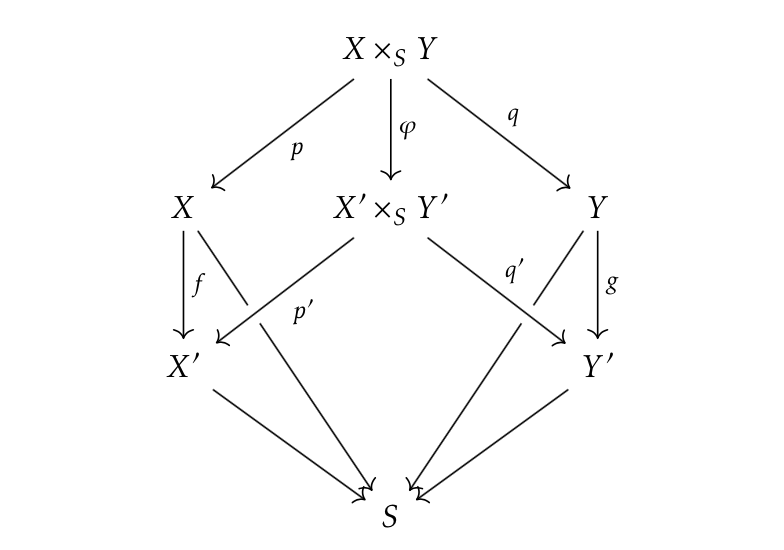Let $X \to X^\prime \to S$ and $Y \to Y^\prime \to S$ be morphisms of schemes. Then we obtain the following diagram.
Is it true that under suitable conditions, the equation $$ \mathbf R \varphi_\ast(\mathbf L p^\ast(\mathcal F) \otimes^{\mathbf L} \mathbf L q^\ast(\mathcal G)) \cong \mathbf L p^{\prime, \ast}(\mathbf R f_\ast(\mathcal F)) \otimes^{\mathbf L} \mathbf L q^{\prime, \ast}(\mathbf R g_\ast(\mathcal G)) $$ holds for any $\mathcal F \in \mathbf D_{\mathsf{Coh}}^b(\mathcal O_X)$ and $\mathcal G \in \mathbf D_{\mathsf{Coh}}^b(\mathcal O_Y)$. In other words, if we write $\mathcal F \boxtimes \mathcal G = \mathbf L p^\ast(\mathcal F) \otimes^{\mathbf L} \mathbf L q^\ast(\mathcal G)$, then is it true that $\mathbf R \varphi_\ast(\mathcal F \boxtimes \mathcal G) \cong \mathbf R f_\ast(\mathcal F) \boxtimes \mathbf R g_\ast(\mathcal G)$? If $X^\prime = S = Y^\prime$, then this equation reduces to the Künneth formula in 0FLN.

